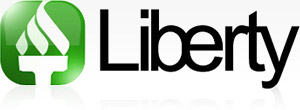Softwall Cleanrooms vs. Hardwall Cleanrooms
Liberty Industries is a manufacturer and distributor of industry leading modular cleanrooms. These controlled, free-standing environments allow experts in a variety of industries to perform delicate manufacturing, sensitive research, and other processes. Our team has more than 60 years of experience providing cleanrooms and other contamination control supplies.
We serve leading organizations from a wide variety of industries. Some of the industries that we serve include:
- Medical equipment manufacturing. Cleanrooms help ensure that delicate, sensitive, and sanitary medical equipment does not become contaminated.
- Assembly and packaging. Our cleanrooms are ideal for sterile packaging applications.
- Electronics. The electronics industry relies on cleanrooms to ensure component cleanliness during the assembly of sensitive electronic devices. Particulate contamination as minor as a speck of dust on a microchip can compromise a system.
- Aerospace. Aerospace manufacturing cleanrooms allow industry experts to deliver safe, effective aerospace components in an industry where even minor mistakes can lead to catastrophic equipment failure.
- Research and development. Cleanrooms help ensure that research is accurate and study subjects remain sanitary.
- Food preparation and processing. Many food preparation and processing applications require complete sterility. Our cleanrooms allow food manufacturers to achieve this level of sterilization with ease.
- Pharmaceutical manufacturing. Creating life-saving medication requires sterile work surfaces with no chance of contamination.
What are the Different Types of Cleanrooms?
The potential uses for cleanrooms are quite varied, so they are available in multiple forms. The key to successful cleanroom implementation lies in selecting the cleanroom best for your individual application. Modular cleanrooms are often an ideal choice because of their versatility and adaptability to changing application needs.
At Liberty, we offer two varieties of modular cleanrooms: softwall and hardwall.
- Softwall cleanrooms are built around steel superstructures. Their walls are engineered with visibility and flexibility in mind and typically feature soft, transparent vinyl walls and entrances.
- Hardwall cleanrooms rely on prefabricated panels to form the walls and ceilings of the cleanroom. These panels may be constructed out of a number of materials, but most hardwall cleanrooms are acrylic with cabinet-style entrances.
Some features, however, persist in both hard and softwall cleanrooms. Both of these varieties are easy to transport and adapt to a variety of requirements. Custom or specialized elements like filters, furniture, and lighting are available regardless of cleanroom type. Hard and softwall cleanrooms can also both be certified to meet an array of industry standards, including US FED STD 209E and ISO Standard 14644-1.
Softwall Cleanrooms vs. Hardwall Cleanrooms
Softwall Cleanrooms
Softwall cleanrooms present a number of benefits. They are especially ideal for applications that require:
- Easy installation and deconstruction. Softwall cleanrooms are simple to install and remove thanks to their flexible design. They also do not require underground preparations.
- Emergency or short-term use. Softwall cleanrooms are not as ideal for ultra-sanitary applications as hardwall cleanrooms. They’re ideal for applications with less critical processes or as holdovers during other projects.
- Flexibility and customization. Modifying these structures in order to put them into virtually any environment is always an option. Even though the structures are made of steel, they can be fitted to a wide variety of heights and widths.
- Minimal cleanroom footprint. Softwall cleanrooms offer an ideal solution for facilities with limited available space.
- Cost-effective. Due to the short installation process, softwall cleanrooms tend to be more affordable than their hardwall counterparts.
Hardwall Cleanrooms
Unlike softwall cleanrooms, the rigid structure of hardwall cleanrooms renders them more suitable for projects that require:
- Stable structure. If a stable structure is required to protect people or products, a hardwall cleanroom will prove far more beneficial than a softwall alternative.
- Permanent or semi-permanent use. Hardwall cleanrooms are built with permanent infrastructure, so they’re best suited to applications that can utilize them on a permanent or semi-permanent basis.
- Pressure regulation. The harder wall panels make it easier to keep pressure regulated within the contained environment.
- Prevention of airborne contaminants. Temporary structures are more prone to leaks or punctures that can contaminate the cleanroom. Permanent structures largely mitigate this risk.
- Privacy and security. Hardwall cleanrooms are easier to secure and also contain sound better than softwall cleanrooms. This is ideal for applications where sensitive or classified research may be conducted.
Hardwall and Softwall Cleanrooms From Liberty Industries
At Liberty Industries, we’re proud to offer our clients an expansive range of cleanroom solutions and related products. Our product line includes:
- Softwall and hardwall modular cleanrooms. We offer cleanrooms suitable for use in a variety of applications that are easily customizable to suit a wide range of requirements.
- We offer a complete line of cleanroom furniture in order to ensure sterility and meet strict requirements.
- Air filtering equipment. Our air filtering equipment includes charcoal, HEPA, and ULPA filters.
- Cleanroom supplies. Cleanroom supplies range from wipes, mops, and sponges to disposable garments and shoe covers.
For more information about our cleanrooms and related products and services, please contact us or request a quote.

